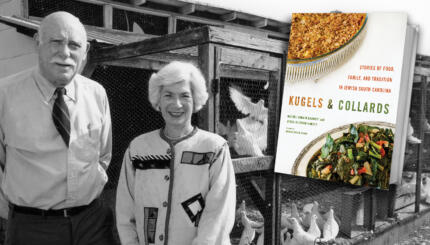I like knowing who came before me, whose work has made it possible for me to do my work. As a recent graduate, who moved from Milwaukee, Wisconsin, down to Jackson, Mississippi, I had a lot learning to do. My job as an ISJL Community Engagement Fellow, as well as my personal interests and commitments, require that I know about social justice history in the South.
I especially felt pulled to learn about other Northerners who came down to this beautiful, impressively hot, incredibly complicated place, with the hope of doing some good and learning a lot along the way. I wondered who came before me; what positive inroads did they make? What mistakes did they make? I am particularly interested in the crossroads of women, history and Jewish social justice How did their efforts, in a time when so many of their identities were marginalized, work to make good change?
Recently, I learned more about Jewish New Yorker and civil rights activist Polly Cowan, and her unlikely colleague Dr. Dorothy Height, a black civil rights and women’s right activist. These two women spearheaded a project during Freedom Summer, 1964. It was called Wednesdays in Mississippi.
Throughout the summer of 1964, groups of women from six northern cities gathered both white and black participants to come down to Mississippi to spend a Wednesday learning, observing, and being together. Cowan and Height worked to bring integrated teams of Northern women down to the Deep South so they could gain new insights and bring those perspectives back to their northern communities. These integrated teams met in their home cities before coming to Mississippi. Once in Mississippi, they stayed with host families and learned about their experiences. Cowan and Height required that the Wednesdays in Mississippi travelers do something in their home communities to actively advocate for civil rights.
While there are so many dimensions to this story, what resonates most with me is their focus on dialogue between the communities. The women from the North lived in a different context. The inequality between black and white people was seen in their communities, but not as overtly as the inequality experienced in the South. Wednesdays in Mississippi aimed to demonstrate how there were differences between Northern and Southern civil rights, but both regions had much work to do to make their communities a more just place to live. Both regions stood to learn a lot about the others approaches to combating inequality.
The experiences of Beatrice “Buddy” Mayer, from Chicago, and her Southern host Elaine Crystal of Jackson, speak to the different ways that these women interpreted their role in the civil rights movement. When interviewed for a documentary, Ms. Mayer expressed that she felt the Southern women were not necessarily doing enough to push civil rights forward, while Mrs. Crystal speaks about the judgment she felt for being involved at all in the movement. In both cases, the women had their own ways of working toward a more just society and their own perspectives on how best to bring about change.
For me to truly understand the place I now live, I need to know its history. Wednesdays in Mississippi provided me an example of one of ways that Northern and Southern women came together and talked about their experiences in the civil rights era. These women talked to each other in a time when dialogues were not necessarily being had, especially by average citizens of Northern and Southern cities.
As a Northerner living in the South, I hope that I can learn from the actions of my historical travelers. They came to learn and help, but importantly brought change home with them too. Their story can continue to teach us the necessity of dialogue, and has already taught me a little more about my new home.



